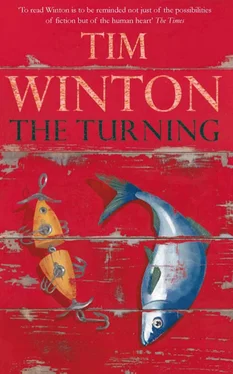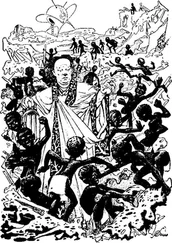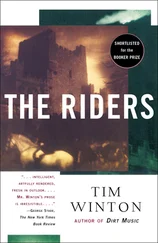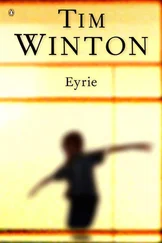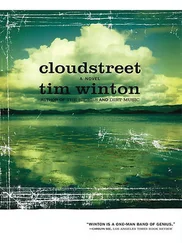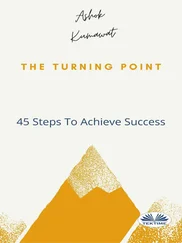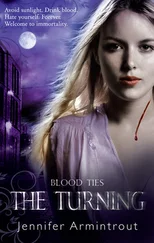It doesn’t happen often but there are times when you have the house to yourself. That’s when you go into your parents’ room and take the rifle from the wardrobe. You just sit with it across your lap, there on the soft, wide bed.
The old Savage isn’t much of a weapon, an old single-shot.22 with a battered stock and tarnished gunmetal, but you like the weight of it in your arms and the way its curves and contours feel shaped by many hands, much holding. It calms you down, that rifle. When you sight along the barrel the wood against your cheek is smooth. You narrow your vision to a piece of space the size of a fingernail and things and people enter and leave that little patch of light as you will them to.
You’re not an idiot — you know all about firearms safety. Every time the old man is free he drives you out to some farm or other, and when you’ve filled the boot of the car with mallee roots for the kitchen stove, he brings the rifle out and you take turns knocking cans off a stump. The whole time he’s drilling you about safety. You know about ricochets over water, about climbing through the fence with a loaded weapon. He’s shown you grisly black and white photos of self-inflicted wounds, of gunshot corpses streaked with blood the colour of tar. Clear the breech. Check and check and check again. The safety catch is a fool’s idea of safety. And you know from experience what a.22 hollowpoint does to a living creature. There’s no such thing as a clean shot or an easy death. You’ve shot rabbits for the dog and killed foxes for farmers but you’ve got no more stomach for it than the old man.
Still, you love that rifle. But you take it seriously, and the gravity of a loaded, cocked weapon makes your hands tremble. You know it’s old and ugly, yet you care about it the way you care for your dog, the kind of ravaged mongrel strangers will cross the street to avoid. You love it because it’s yours.
You try to fit in but for weeks it’s useless. You’re nervous all day and at night you just lie there hearing more than you want to. Your little sister howls with colic across the hallway and even though you know she’s stuffing her mouth with a pillow, you hear the old girl’s muffled sobs through the wall. The mutt farts and groans outside your window. And at the change of shift there’s the car in the drive and the creak of the stove door and the old man’s shoes grinding on the kitchen lino. So, to keep yourself from being a baby, you think of that rifle in its naphthalene fog behind the coats in the wardrobe.
The old man keeps the breech-bolt hidden separately from the rifle. Without a firing mechanism the rifle is a dog without teeth. It’s not even a weapon. Although you know where the bolt is stashed you don’t go near it; you can’t do anything stupid.
A few really bad days you sit at the window to watch people come and go. You can see anyone moving a mile away, so you track them in the sights as they make their way uphill. Like that wild-looking kid in the sheepskin jacket who’s always around. Or the station wagons full of Aborigines on pension day. You contain them a little while. But you can’t see trouble coming. You don’t know what to look for.
And then, somehow, you forget to keep watch. You don’t think of the rifle. You’re overwhelmed by schoolwork, you sleep at night, and, without noticing, you become familiar. Although the town still seems temporary it feels normal for longer and longer stretches. You fall in love with an older girl. You learn to play basketball and even though you’re rubbish at it you like the way the game takes you over. You play against blackfellas who whip you and then get you to walk them home to the hostel because they’re afraid of the dark. You register the old man’s sense of disappointment in Aborigines but that’s a cop thing. You’re in love with a girl who’s out of reach. Just to pass her house you ride to the wharf where grain ships load and tuna boats disgorge icy bluefin. The wharfies and sailors and fishermen are scarred and broken-toothed and you ride past them, invisible.
On the wharf you find a battered foreign-language nudie magazine in which all the women’s breasts are the size of pumpkins. You take it home and stash it in the cavity beneath the drawer in your desk. You consult it frequently, especially the swarthy centrefold who cradles her breasts like an armload of fruit. Eventually you notice how her eyes follow you. You try to concentrate on the dark splash of hair between her legs but she’s looking back at you. One afternoon you ride down to the water and shove the rolled magazine through the planks of the whalers’ jetty.
You watch the girl you love playing netball and wish you were visible again.
You blunder into the bathroom to find your mother with her breasts in her hands.
They’re sore, she says. I’m weaning your sister.
Oh, you murmur. Right.
Afterwards, stroking the dog on the back step, you think of the twelve-year gap between you and the baby, wondering what it was that took the oldies so long.
When the old man gets a weekend off, he drives you all out to a salmon camp along the coast where you set up in an empty tin hut with a box of groceries and some sleeping bags. The autumn air is cool and salty, spiced with the tang of peppermint trees which spill down the dune to the empty beach. Together you catch herring from the stony headland and sit out by a bonfire telling jokes. Your mother is bright and girlish. Your father’s quiet laugh makes you sleepy, and in the morning you mind your sister while the oldies walk the beach hand in hand. Before they return the baby has taken her first unaided steps and only you’re there to see it.
The night you get back to town you wake to the scream of sirens. Lights crawl the wall and the phone rings in the hallway. From the kitchen window you see the school in flames. The old man is out the door and you’re left there in a fizz of excitement you’re careful to conceal from your mother. In the morning you stand around on the oval with everybody else while the drizzle comes down and the gossip goes around about the kid recently expelled, the one who made bombs and filled condoms with bulls’ blood and jacked up teachers’ cars. You know who they mean — it’s the dishevelled boy in the sheepskin jacket, the one you see everywhere — and kids are coming to you now, needling you for information because you’re the copper’s kid and you should know. Every time you shrug they take it as confirmation. And then it’s in the local paper, the boy helping police with inquiries.
The rest of the week, with the old man on afternoon shift, you get home to find him sipping Nescafé with his baton and cuffs on the sink. He runs his thumbnail across the ribs of the draining board with a clouded look on his face. You want to ask but you know he’ll tell you nothing and you respect him for it.
Demountable classrooms arrive at school. The wild boy is released without being charged. Somehow the old man seems mollified.
For the school social you gargle with Listerine, spray your hair with VO-5 and try to work up the guts to speak to the girl with the spoiled face, the one you haven’t stopped thinking about for weeks. The music is awful. A bunch of blackfellas on special release from the prison farm play Status Quo and AC/DC like it’s country and western and there’s a strange current in the gym that saps your resolve. Kids are acting weird. Someone sets off a rotten egg bomb and an hour later, when the air has cleared, two ambulancemen and your own father burst in as news rolls in a swell across the dancefloor that there’s a girl dead in the toilet. The lights come up. The band witters to a halt. As you file out with the others you see the old man emerge from the basement, cap askew, to search the crowd for you, and when he sees you his nod is curt and he’s gone again. Out in the carpark detectives pull in. You recognize the swagger. Your basketball mates are gone already, so you head home.
Читать дальше
